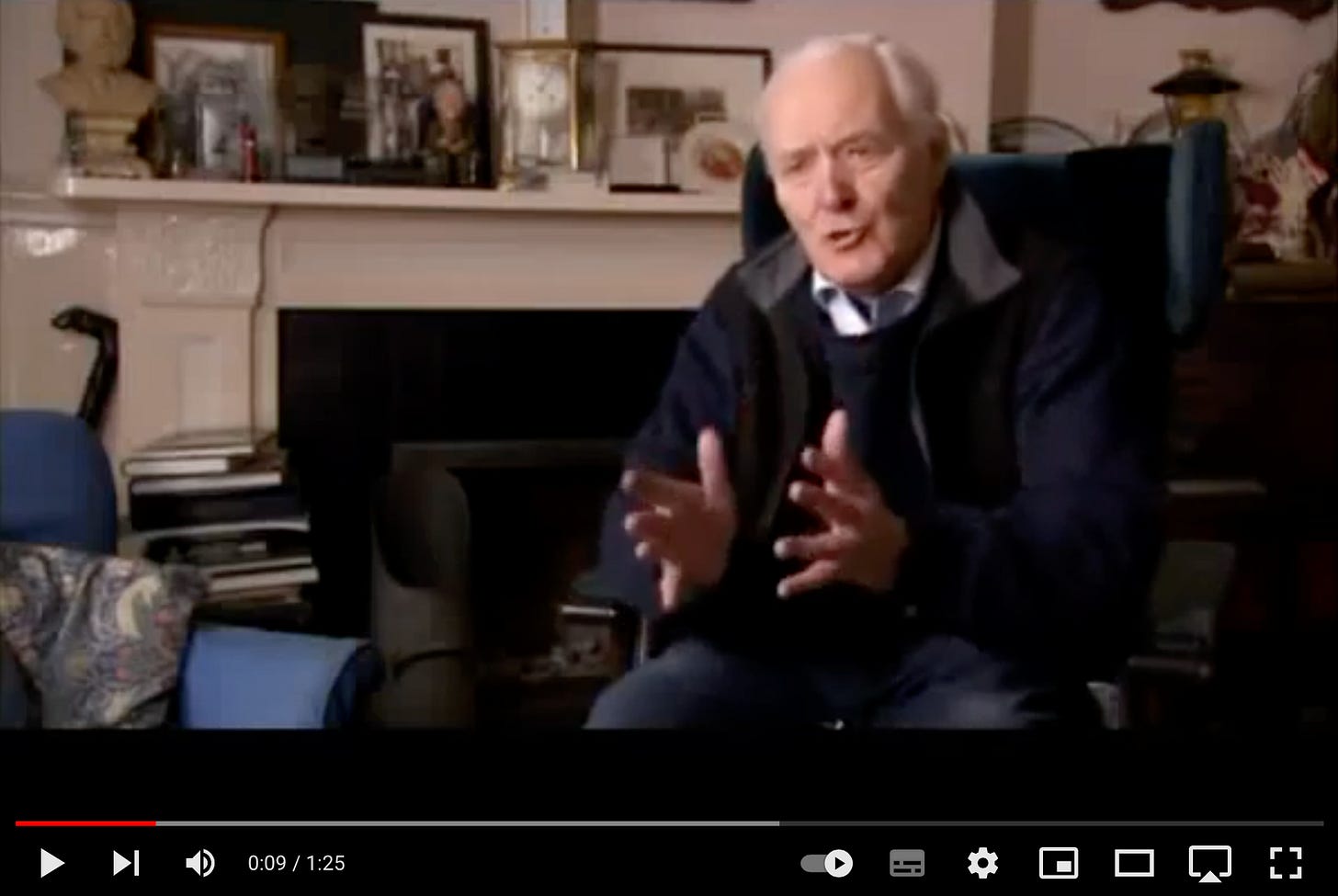A prescient warning about fear
From former Labour MP Tony Benn
“Do not be afraid” could perhaps be described as the very opposite of the prevailing message from the authorities during the covid era. In the words of Dr Gary Sidley, a retired clinical psychologist with over 30 years experience working for the NHS:
Behavioural scientists know that a frightened population is a compliant one, so this was exploited as a way of compelling us to abide by the coronavirus restrictions. The minutes of the SPI-B meeting on 22 March 2020 stated: “The perceived level of personal threat needs to be increased … using hard-hitting emotional messaging.” Aided by the mainstream media, the British public were subsequently bombarded with fear-inducing information, images and mantras: Covid-19 daily death counts reported without context; inflated predictions of future casualties; recurrent footage of dying patients in Intensive Care Units; and scary slogans like, “If you go out you can spread it”, or “People will die”, often accompanied by images of emergency personnel wearing PPE.
Behavioural scientists now know better than ever what authorities through the ages have always known well enough. That frightened people are easier to govern.
I suspect that I first heard this said by Tony Benn, the former Labour MP known for (among other things) keeping a diary, drinking tea, and renouncing his hereditary peerage.
The relevant interview was harder to find and to view than I expected on YouTube, but it can be seen e.g. here (transcript below, emphasis added):
I think democracy is the most revolutionary thing in the world.
Far more revolutionary than socialist ideas or anybody else’s idea.
Because if you have power, you use it to meet the needs of you and your community.
And this idea of choice which capital talks about all the time — you’ve got to have a choice — choice depends on the freedom to choose. And if you’re shackled with debt, you don’t have the freedom to choose.
[Interviewer: It seems like it benefits the system if the average working person is shackled and in debt.]
People in debt become hopeless. And hopeless people don’t vote… They always say everyone should vote. But I think if the poor in Britain or the United States turned out and voted for people who represented their interests it would be a real democratic revolution. And so they don’t want it to happen. So keeping people hopeless and pessimistic…
You see I think there are two ways in which people are controlled: first of all frighten people; and secondly demoralise them.
An educated, healthy and confident nation is harder to govern. And I think there’s an element in the thinking of some people… [that] we don’t want people to be educated, healthy and confident, because they would get out of control.
The top 1% of the world’s population own 80% of the world’s wealth. It’s incredible that people put up with it. But they’re poor, they’re demoralised, they’re frightened. And therefore they think perhaps the safest thing to do is take orders and hope for the best.
The same clip is also available on Rumble.
His words have aged well. Particularly in the context of the covid era.
And stepping back somewhat, those of us old enough to remember Tony Benn can perhaps look back and see some of the ways in which the authorities have sought to frighten people over the past few decades:
1960s: nuclear war
1970s: climate crisis due to global cooling
1980s: AIDS; acid rain
1990s: crime; the hole in ozone layer
2000s: terrorism; weapons of mass destruction
2010s: climate crisis due to global warming
2020s: pandemics; global boiling
Fearmongering. As a means of control.
But I now increasingly wonder how much of the above we should actually have been scared of…
Related:
Unexpected Turns homepage
The most-read articles can be found here




